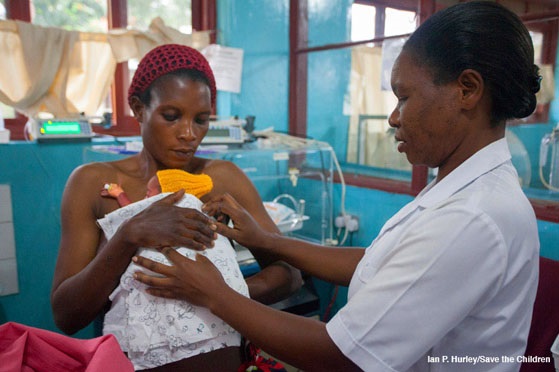Delegates from 10 countries will gather in Malawi to discuss how to accelerate the adoption of life-saving care for premature babies
A total of 85 delegates from 10 countries will gather in Blantyre, Malawi, October 24–26 to discuss how to accelerate the adoption of life-saving care for premature babies, especially increasing the adoption of kangaroo mother care, nutrition, and thermal care interventions.
The Government of Malawi and other partners are hosting the fourth meeting of the Kangaroo Mother Care Acceleration Partnership (KAP). Dr. Fannie Kachale, director of the Reproductive Health Department, Ministry of Health, will open the meeting, accompanied by Harriet Chanza of the World Health Organization and Dr. Msandeni Chiphaliwali of Kamuzu Central Hospital.
Participants will come from six “priority countries” of Ethiopia, Malawi, Nigeria, Rwanda, Bangladesh, and India, chosen because of their high rates of premature birth and strong political will to take action. For the past three years, newborn health experts from these countries have been sharing research, program experience, and innovations and built a professional network through meetings, site visits, and an online platform. Delegates from four additional countries – China, Kenya, Myanmar, and Uganda – whose kangaroo mother care acceleration plans have recently gained momentum, are also attending.
The evidence strongly suggests that Malawi and other KAP countries are taking the right path by paying more attention to premature birth. According to data released by UNICEF this week, Prematurity is the leading cause of under-5 deaths worldwide, and newborn deaths contribute 46 percent of all under-5 deaths. Reducing deaths and disability due to prematurity is thus essential to achieving the Sustainable Development Goals. The good news is that KAP countries are making notable progress:
- Bangladesh established a national training center for kangaroo mother care
- Ethiopia integrated kangaroo mother care into its health strategy
- India approved a family-centered care model for special newborn care units
- Malawi developed a routine reporting system for kangaroo mother care
- Nigeria completed a landscaping study of care provided to preterm and small newborns
- Rwanda is drafting a maternal-child health policy that includes kangaroo mother care
This meeting concludes just two weeks before World Prematurity Day, November 17. The theme this year, “Let Them Thrive: Respectful Care for the Smallest,” highlights the importance of ensuring that premature babies receive the respectful care they need to grow and develop beyond the newborn period.
Premature infants are more likely to suffer from acute and chronic medical conditions, nutritional deficiencies, vision and hearing deficiencies, cognitive and speech delays, behavioral problems and learning disabilities, depression, anxiety, attention deficit disorder, and more – all hindering optimal development and progression through childhood and ultimately their productivity as adults.
These are especially unfortunate outcomes because most death and disability due to prematurity is preventable. Thus, by paying more attention to the world’s smallest we can achieve some of the biggest development gains. Indeed, 194 countries have agreed, endorsing the Every Newborn Action Plan at the World Health Assembly in 2015, which includes ambitious targets for premature babies and kangaroo mother care. Achieving this goal will require concerted global and national efforts, and the KAP is one of several efforts helping to maintain the momentum.
What you can do
- Contact your representatives and ask them to support the Reach Every Mother and Child Act to end all preventable deaths of mothers and babies around the world
- Support World Prematurity Day November 17 by organizing an event or sharing information with your friends and colleagues
- Contact your health professional association and ask what they are doing to support the Kangaroo Mother Care Joint Statement they endorsed in 2016
- Make a donation to your favorite charity in support of maternal and newborn health

